Akihabara - The Insane Epicenter of Otaku, Retro Gaming, and Just Plain Weirdness
 Akihabara: The Electric Heart of Tokyo
Akihabara: The Electric Heart of Tokyo
Akihabara, also known as "Akiba," is more than just an ordinary district of Tokyo; it's the pulsating heart of modern Japanese pop culture, a hub of technology, and a fantastic world that seems detached from reality. Located in the central part of the city, Akihabara acts like a magnet, attracting lovers of anime, manga, video games, and all kinds of electronics. This lively place is full of shops, cafes, and entertainment spots, all in a specific, Japanese style, unique and unmatched in any other country.
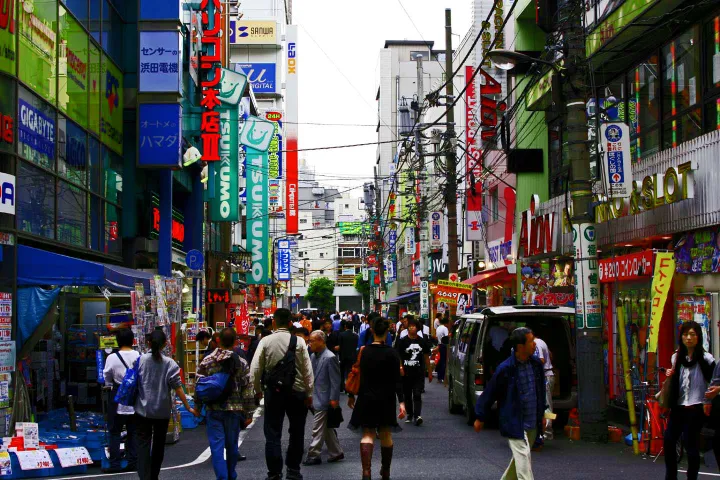
The History of the Akihabara District
 Origin and Meaning of the Name Akihabara
Origin and Meaning of the Name Akihabara
The name "Akihabara" (秋葉原) combines three Japanese kanji characters: "Aki" (秋), meaning "autumn", "Ha" (葉), meaning "leaf", and "Bara" (原), which can be translated as "field" or "open space". Literally, Akihabara could be translated as "Autumn Leaf Field" or "Field of Autumn Leaves", reflecting the possible original characteristics of the area before it became an urban center.

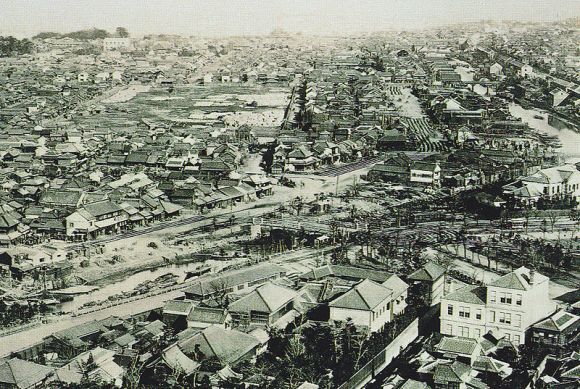
Today, the name Akihabara is symbolic, referring not so much to its original meaning, but to its role as a global center of electronics, pop culture, and otaku. The meaning of the name has evolved to reflect the dynamic development and change in character of the district from a quiet space to a bustling center of modern culture.
 Beginnings and Post-War Black Market
Beginnings and Post-War Black Market
Originally known as an area of green spaces, Akihabara began to take on an urban character in the post-war period when it became a center of black market trade. Initially, in the 1940s and 1950s, the district was primarily known for numerous stalls selling radios and other electronic parts, attracting students from the nearby Tokyo University of Electronics. Over time, Akihabara transformed into a huge market where various electronic devices could be found, unofficially becoming known as “Electric Town".
 Blossoming as an Electronics Hub
Blossoming as an Electronics Hub
In the 1960s and 70s, Akihabara began to attract even more attention, transforming into a leading center for electronics sales. It was then that numerous stores and pavilions offering state-of-the-art electronic products, such as televisions, radios, cameras, and more, emerged. The district became a symbol of rapidly developing Japanese technology and innovation. The oldest department store in Akihabara, Radio Kaikan, was originally built in 1962, although its current building dates from 2014.
 Evolution into an Otaku Culture Mecca
Evolution into an Otaku Culture Mecca
The late 80s and early 90s marked the period when Akihabara began to attract otaku culture enthusiasts. The development of personal computers and video games, along with the growing popularity of anime and manga, turned the district into a meeting place for fans of these entertainment forms. Stores specializing in computer equipment, video games, and later anime and manga products, began to fill the space between traditional electronic shops. Over the following decades, Akihabara cemented its position as a global center of otaku culture, attracting fans from around the world with its unique stores, maid cafes, as well as gaming halls and arcades.
Building and Statistics of the Akihabara District
Structure and Size of the District
Akihabara, located in the central part of Tokyo in the Chiyoda district, is relatively small (1 square kilometer) compared to other metropolitan areas, but its impact on culture and economy is much greater than its size would suggest. The district is characterized by a dense network of streets and alleys, home to countless shops, cafes, gaming halls, and other commercial and service points. The main street, Chuo-dori, is particularly known for its electronic stores and cultural attractions. Akihabara also includes numerous side streets that create a labyrinth of shops and themed premises. Despite its small area, Akihabara is one of the most recognizable and visited districts in Tokyo.
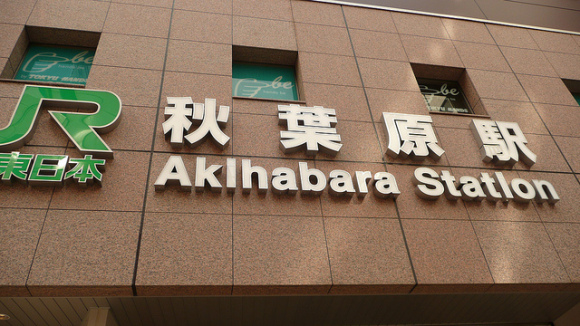
Otaku Culture in the Akihabara District
Akihabara as an Otaku Mecca
Akihabara, known worldwide as an otaku culture center, is a place where fans of anime, manga, and video games find their space. The transformation of Akihabara into an otaku mecca began in the 1990s when stores and points specializing in anime and manga-related products started to appear. The district quickly became a central point for events, premieres, and fan meetings. Stores like Animate, Mandarake, and AKIBA CULTURES ZONE offer a wide selection of manga, figurines, video games, and all kinds of gadgets and souvenirs related to favorite anime and manga series, attracting enthusiasts of these genres from all over the world.
 Maid Cafes and Other Unique Attractions
Maid Cafes and Other Unique Attractions
Maid cafes, or maid-themed cafes, are one of the most distinctive attractions of Akihabara. In these thematic cafes, employees, usually women, are dressed as maids and serve customers in a theatrical and overly polite manner, often playing roles from anime. These cafes have become popular not only among men but also among women, and some, like @Home Cafe, offer services in English. In addition to maid cafes, Akihabara also offers other unique attractions such as theme cafes, art galleries, and gadget shops.
 Diversity of Shops and Attractions
Diversity of Shops and Attractions
The district also offers a wide range of other attractions, such as stores selling retro video games, where fans can find rare titles and consoles from the past. Additionally, Akihabara is home to many electronics stores, where the latest gadgets and devices can be found. For those seeking not just entertainment but also unique experiences, Akihabara offers a variety of gaming halls and arcades, where classic Japanese games and the latest hits can be played. This district is not only a shopping destination but also a space where otaku culture is fully celebrated, attracting both local enthusiasts and international tourists.
Retro Gaming in Akihabara
 Stores with Retro Games and Their Unique Collections
Stores with Retro Games and Their Unique Collections
Akihabara has become a true paradise for retro gaming enthusiasts, with numerous stores specializing in classic video games and consoles. One of the most famous stores, Super Potato, offers a wide range of games from the past, including rare titles from the Famicom, Sega Saturn, or Game Boy era. Another must-visit for retro fans is the Mandarake store, which, in addition to a vast selection of manga and anime, also boasts an impressive collection of old games and console accessories. These stores, filled from floor to ceiling with games, consoles, and memorabilia, are like living museums of video game history, offering not only products but also a nostalgic experience for visitors.
 Akihabara as a Center for Retro Gaming Enthusiasts
Akihabara as a Center for Retro Gaming Enthusiasts
The evolution of Akihabara into a center for retro gaming enthusiasts is linked to its history as an electronics and otaku district. Among the events that attract retro gaming fans are various tournaments and events, such as the Retro Game Expo, where enthusiasts can meet, share experiences, and compete. Additionally, numerous gaming halls, known as game centers, offer a range of classic arcade games, from Pac-Man to Street Fighter, allowing players to experience games in their original, iconic form. Akihabara not only maintains the living history of video games but also continually renews its legacy by organizing events, fan meetings, and creating a space where new generations can discover and appreciate video game classics.
Akihabara in Manga, Anime, and Video Games
 "Steins;Gate"
"Steins;Gate"
In the anime series "Steins;Gate," Akihabara serves as the central stage for the actions of the main characters. The district is portrayed as the center of otaku culture, with numerous references to real stores and places. Akihabara here serves as the backdrop for an intriguing story about time travel, emphasizing its significance in the world of games and anime.
"Durarara!!"
In the series "Durarara!!," Akihabara appears as a meeting place for some characters and a backdrop for certain key scenes. The district is shown as a dynamic place where various threads and mysteries intertwine, fitting the overall urban narrative of the story.
"Love Live!"
Akihabara is also important in the anime "Love Live!", where a girl idol group often visits the district to promote their music. The district serves as a symbol of pop culture and a place where dreams become reality for young showgirls.
 "Persona 5"
"Persona 5"
In the game "Persona 5," Akihabara is one of several districts visited, offering players a variety of activities and shops. As a place for character meetings and interactions, Akihabara in "Persona 5" highlights its role in youth and otaku culture.
"Akiba's Trip"
"Akiba's Trip" is an example of how Akihabara can be used as a creative backdrop. The game narrates a battle against vampires in the heart of Akihabara, where players can explore and interact with various aspects of the district.
"Digimon Adventure"
In "Digimon Adventure," Akihabara appears as a location where characters transition between reality and the digital world. The district here symbolizes a gateway to another dimension and the technological heart of Tokyo.
 "Welcome to the N.H.K."
"Welcome to the N.H.K."
"Welcome to the N.H.K." portrays Akihabara as a key location for the main character, an otaku trying to change his life. Here, Akihabara serves as a symbol of social isolation, but also as a place of hope and change.
"Tokyo Mirage Sessions ♯FE"
"Tokyo Mirage Sessions ♯FE," set in contemporary Tokyo, includes Akihabara as one of its main locations. 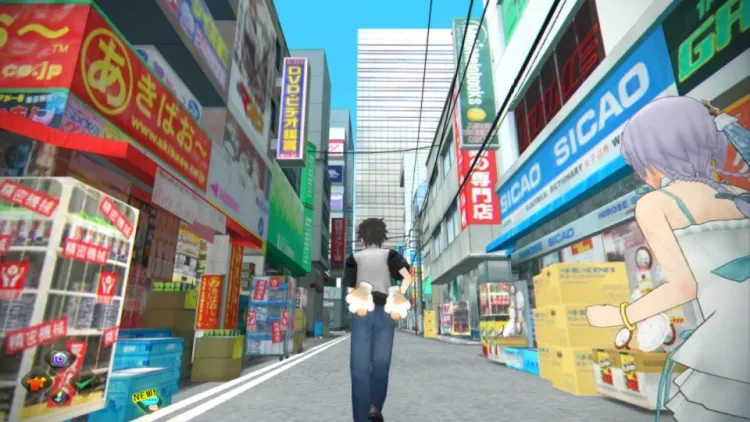
Conclusion
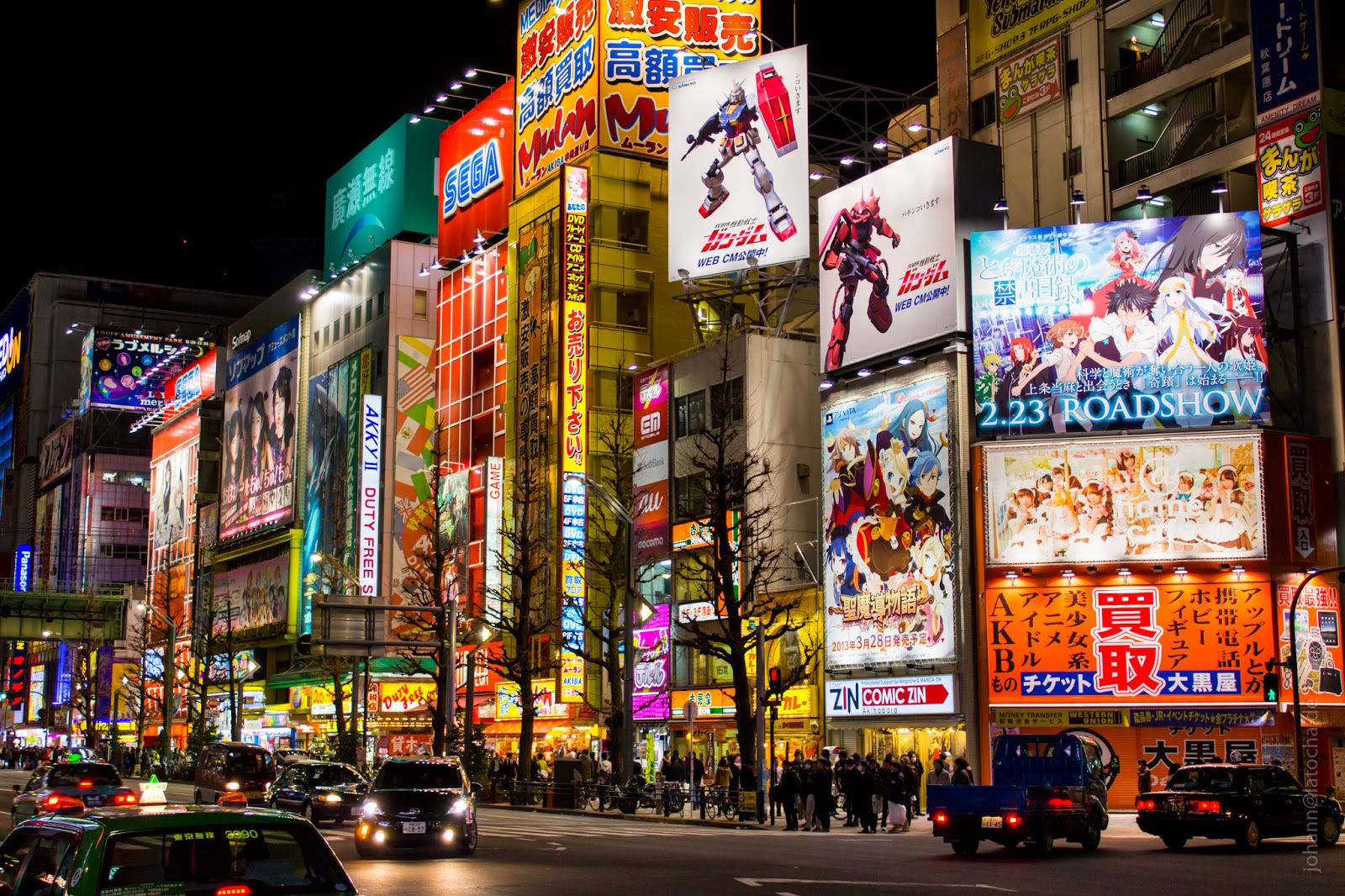
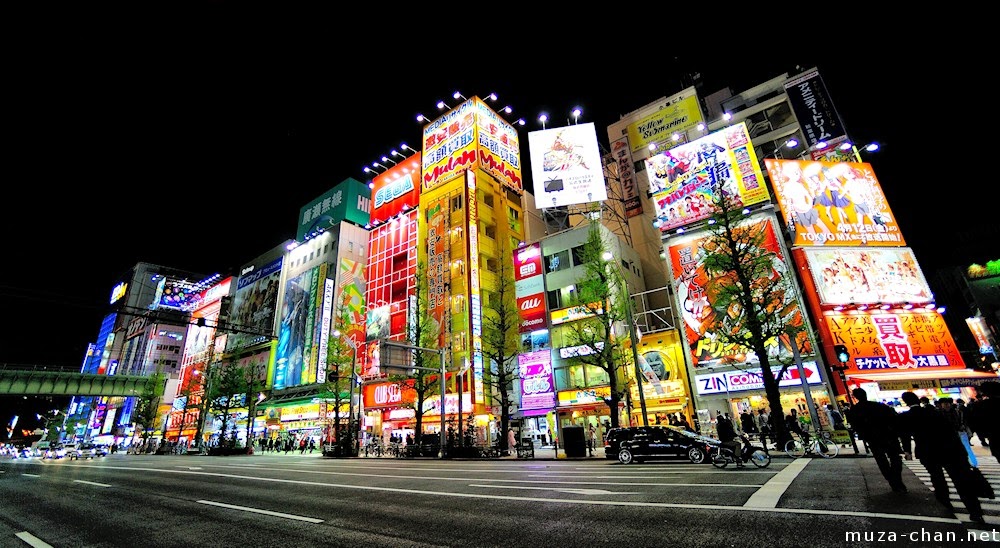
"Strong Japanese Women"
see book by the author
of the page
未開 ソビエライ
An enthusiast of Asian culture with a deep appreciation for the diverse philosophies of the world. By education, a psychologist and philologist specializing in Korean studies. At heart, a programmer (primarily for Android) and a passionate technology enthusiast, as well as a practitioner of Zen and mono no aware. In moments of tranquility, adheres to a disciplined lifestyle, firmly believing that perseverance, continuous personal growth, and dedication to one's passions are the wisest paths in life. Author of the book "Strong Women of Japan" (>>see more)
Personal motto:
"The most powerful force in the universe is compound interest." - Albert Einstein (probably)
Mike Soray
(aka Michał Sobieraj)
未開 ソビエライ
An enthusiast of Asian culture with a deep appreciation for the diverse philosophies of the world. By education, a psychologist and philologist specializing in Korean studies. At heart, a programmer (primarily for Android) and a passionate technology enthusiast, as well as a practitioner of Zen and mono no aware. In moments of tranquility, adheres to a disciplined lifestyle, firmly believing that perseverance, continuous personal growth, and dedication to one's passions are the wisest paths in life. Author of the book "Strong Women of Japan" (>>see more)
Personal motto:
"The most powerful force in the universe is compound interest." - Albert Einstein (probably)
Mike Soray
(aka Michał Sobieraj)
Write us...
Ciechanów, Polska
dr.imyon@gmail.com
___________________
inari.smart
Would you like to share your thoughts or feedback about our website or app? Leave us a message, and we’ll get back to you quickly. We value your perspective!
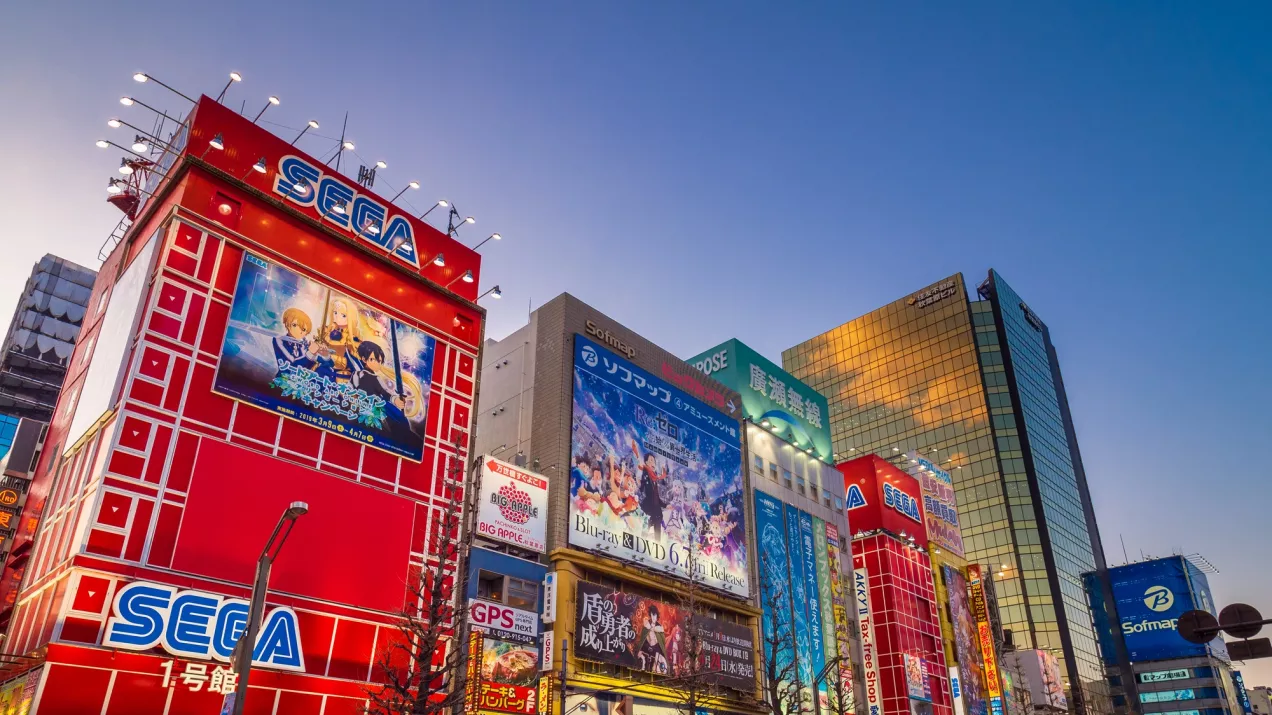 Akihabara: The Electric Heart of Tokyo
Akihabara: The Electric Heart of Tokyo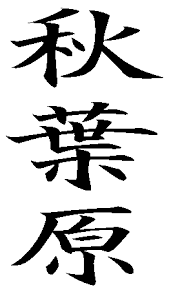 Origin and Meaning of the Name Akihabara
Origin and Meaning of the Name Akihabara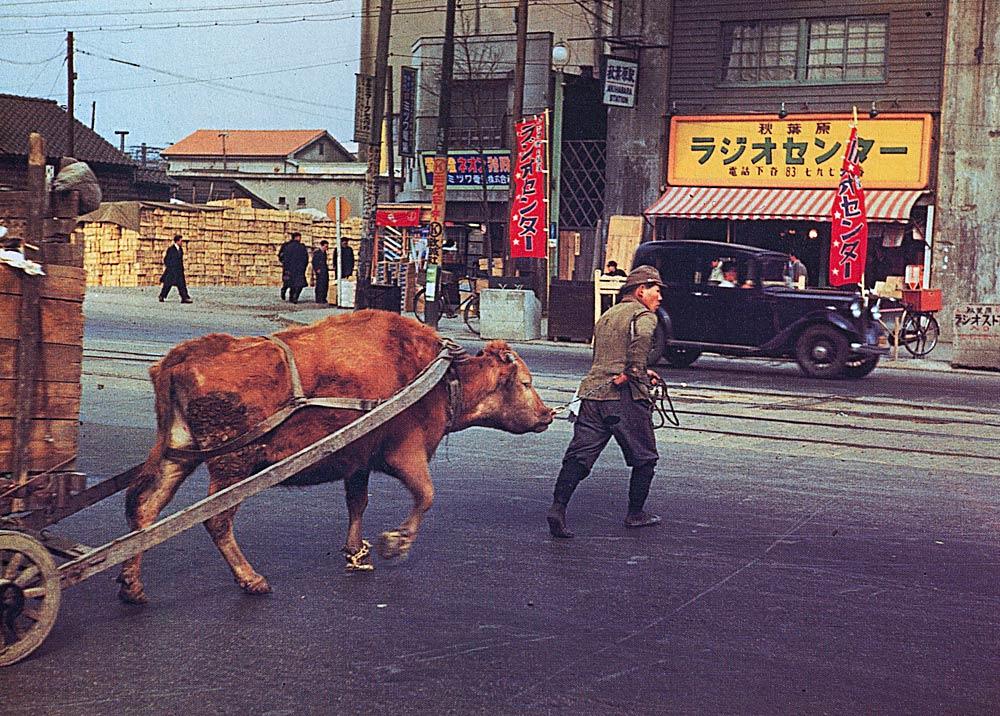 Beginnings and Post-War Black Market
Beginnings and Post-War Black Market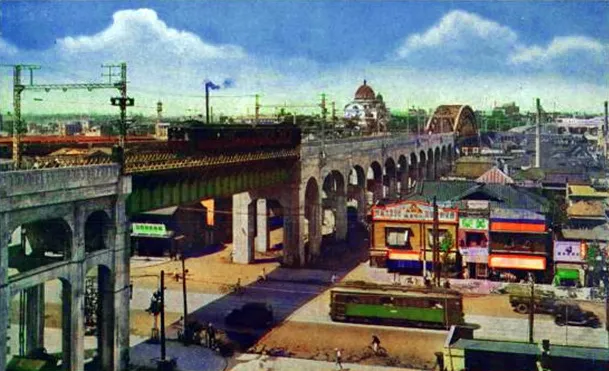 Blossoming as an Electronics Hub
Blossoming as an Electronics Hub Evolution into an Otaku Culture Mecca
Evolution into an Otaku Culture Mecca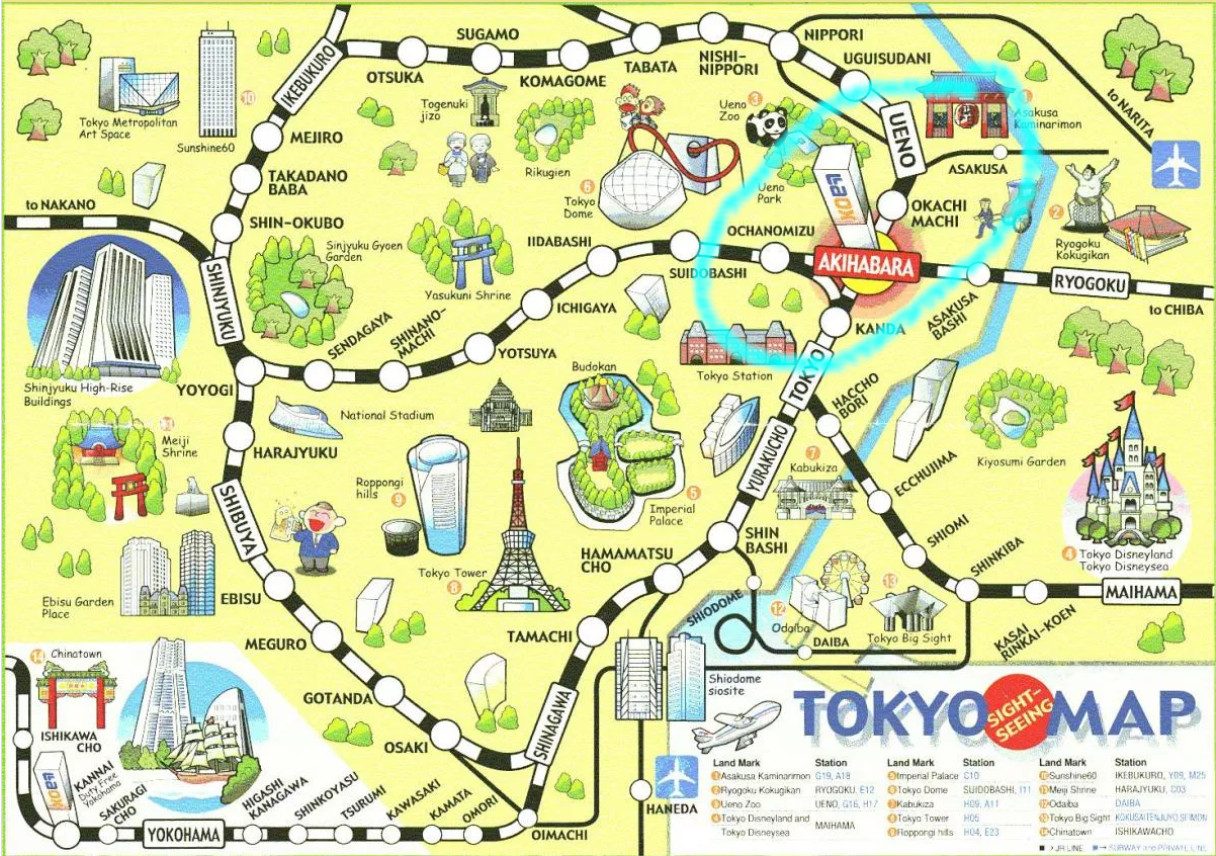
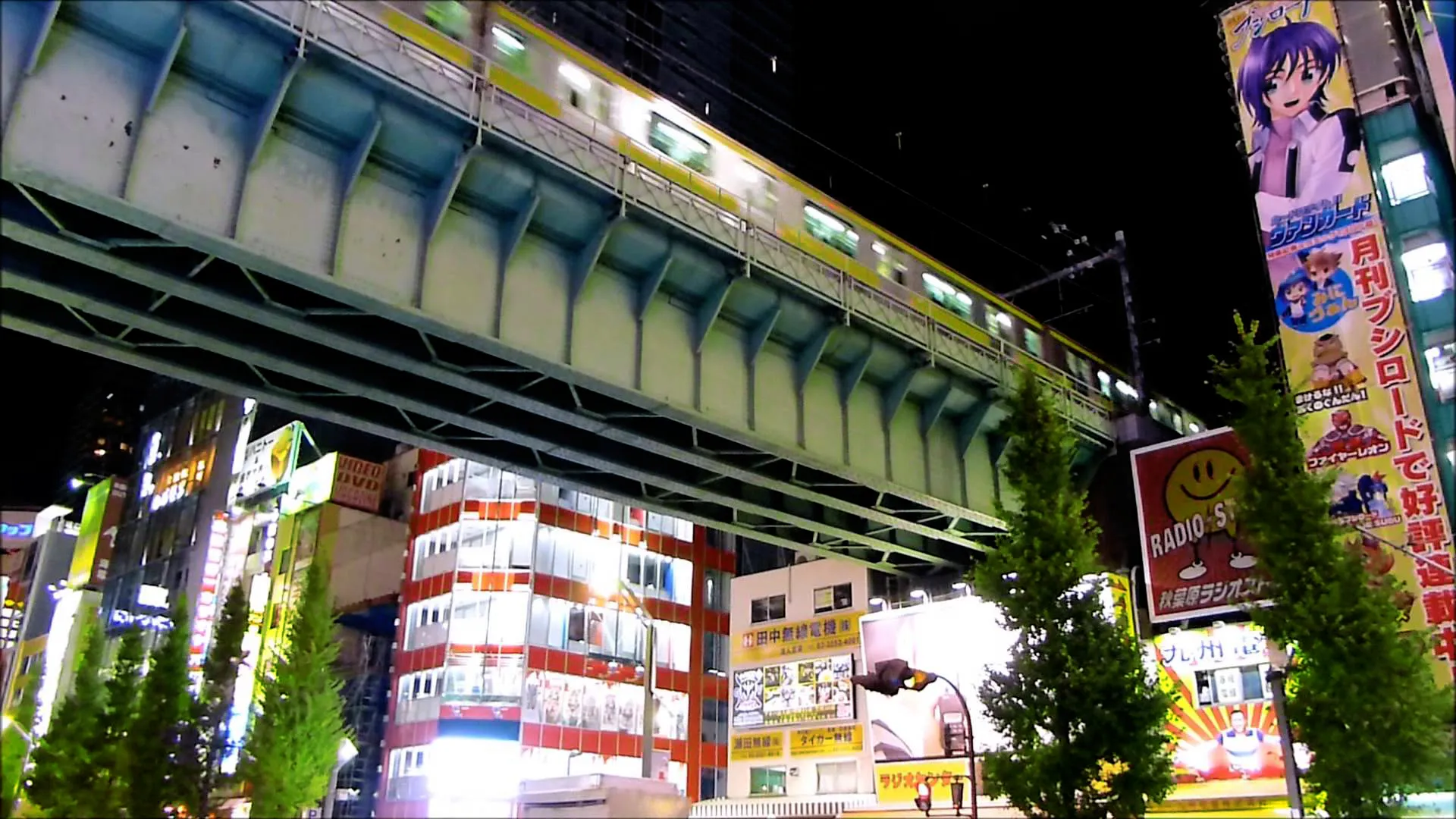
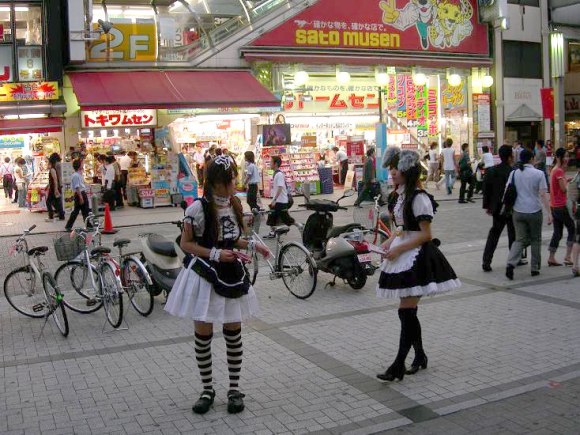 Maid Cafes and Other Unique Attractions
Maid Cafes and Other Unique Attractions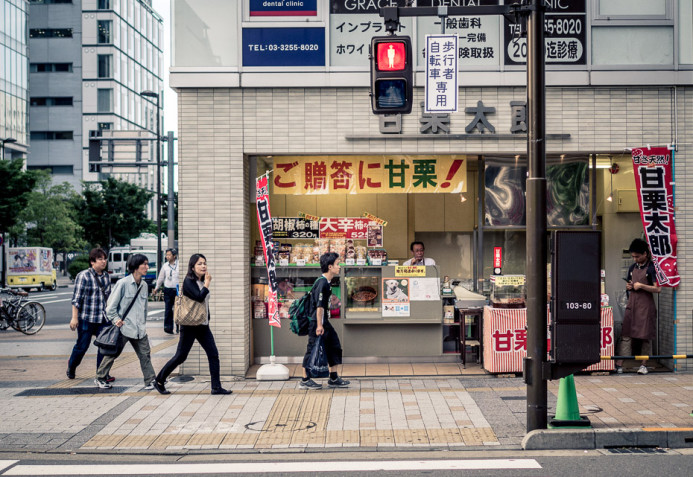 Diversity of Shops and Attractions
Diversity of Shops and Attractions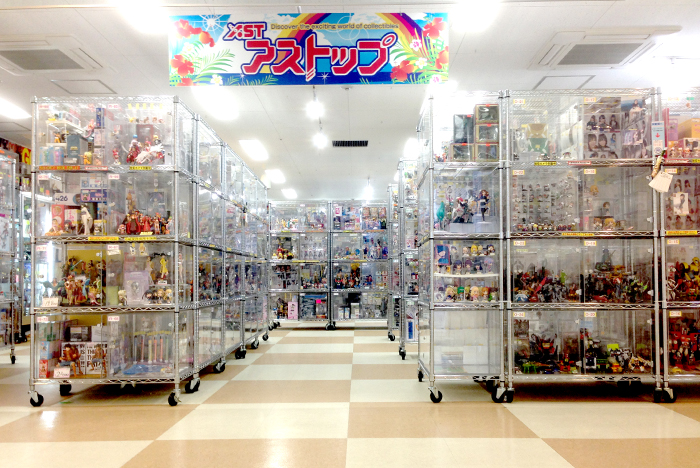 Stores with Retro Games and Their Unique Collections
Stores with Retro Games and Their Unique Collections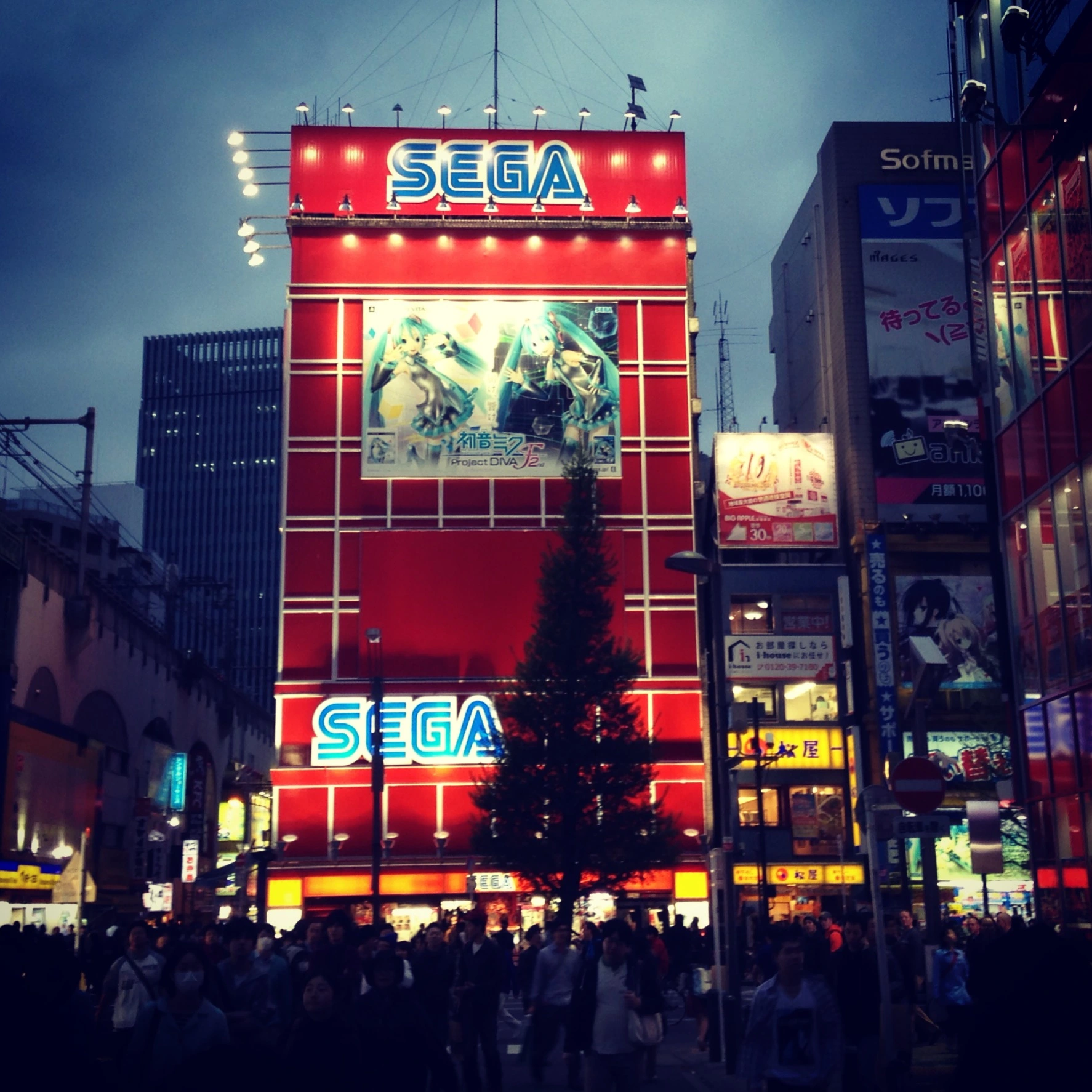 Akihabara as a Center for Retro Gaming Enthusiasts
Akihabara as a Center for Retro Gaming Enthusiasts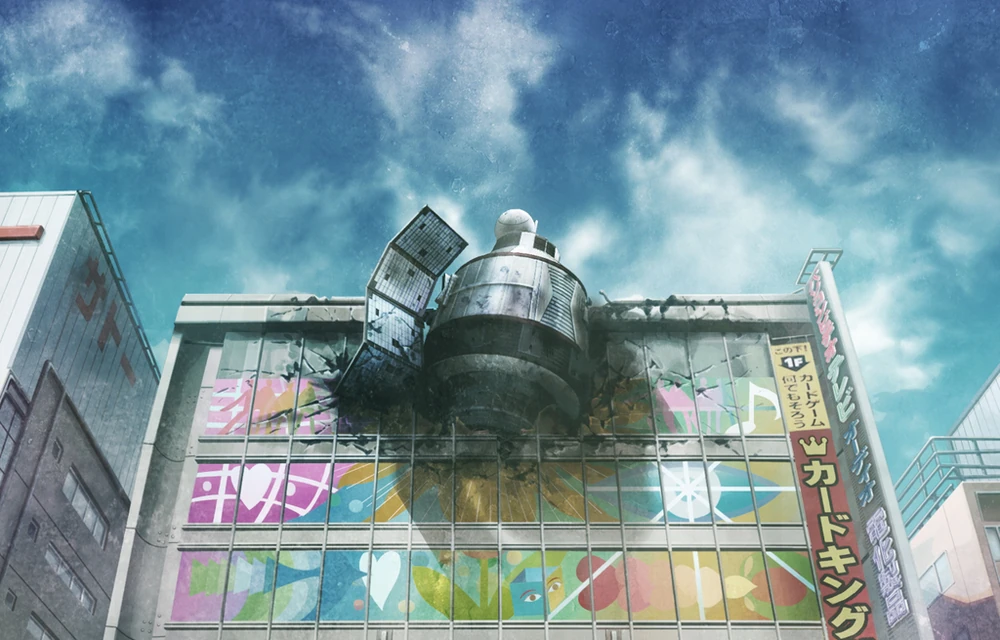 "Steins;Gate"
"Steins;Gate"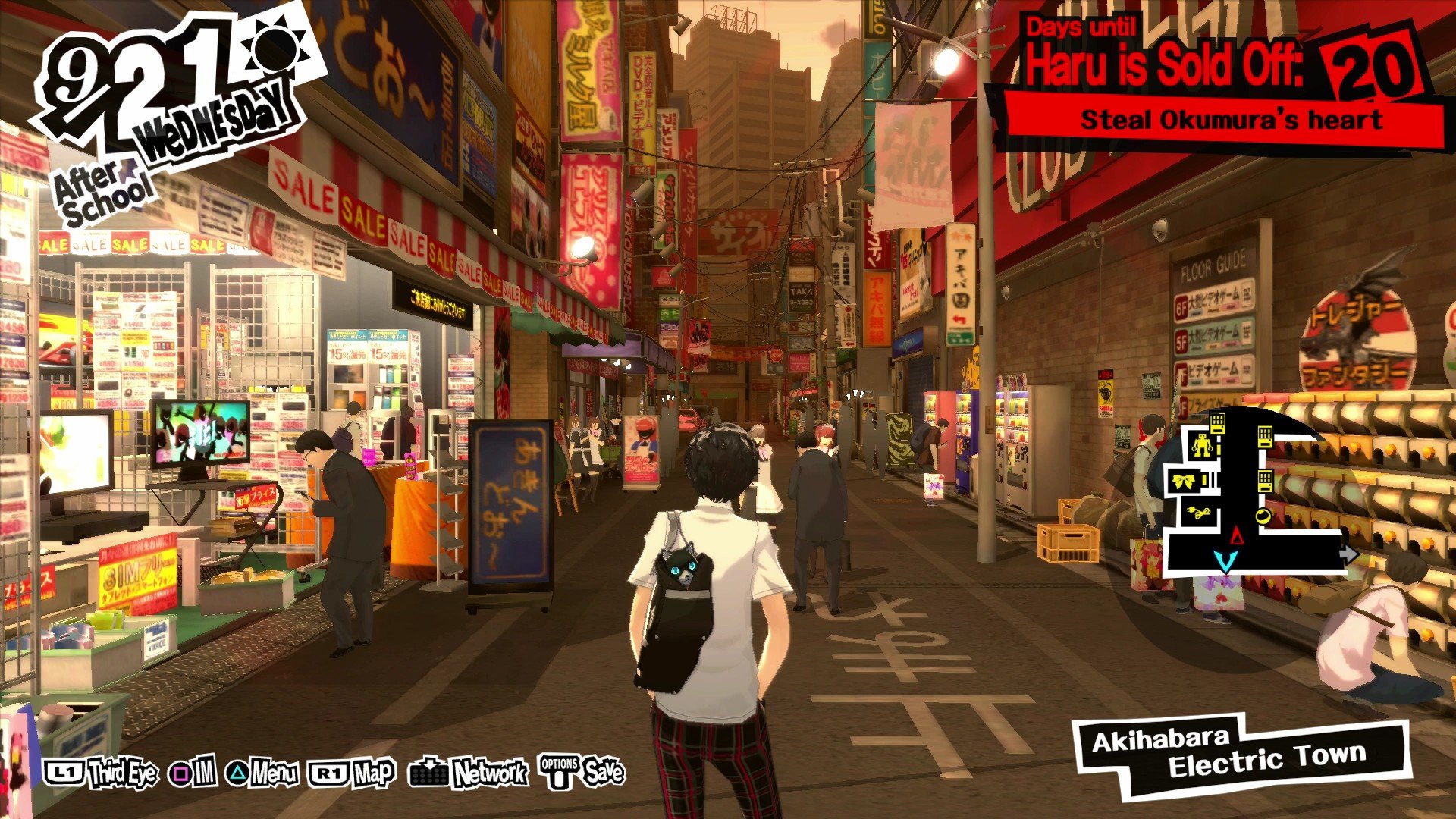 "Persona 5"
"Persona 5"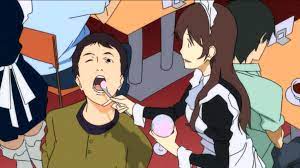 "Welcome to the N.H.K."
"Welcome to the N.H.K."

